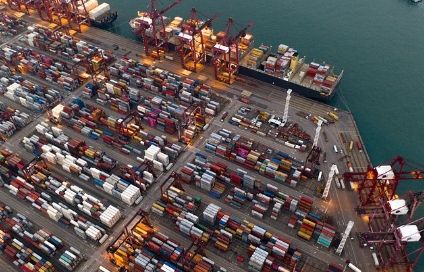What is EXS (Ex Ship) and How Does It Impact Global Trade Logistics?
EXS, or Ex Ship, is an important Incoterm used in international trade that specifies that the seller delivers when the goods are made available to the buyer on board the ship at the named port of destination, not cleared for import. This term delineates the responsibilities between the seller and the buyer very clearly, influencing how shipments are managed upon arrival at the destination port. In this article, I will explore the specifics of EXS, including its operation, advantages, and challenges, while addressing common questions about its utilization in international shipping.

What is Ex Ship (EXS)?
Ex Ship (EXS) is an Incoterm where the seller is deemed to have delivered the goods once they are made available to the buyer on board the ship at the destination port, without the seller clearing the goods for import. The seller bears all risks involved in bringing the goods to the destination port aboard the vessel, but once the goods reach the destination port, the buyer assumes all responsibility for unloading the goods and clearing them through customs.
How does EXS operate in international trade?
Under the EXS term, the seller's responsibility includes transporting the goods to the destination port and arranging for the shipment to be available on board the vessel. The seller does not need to unload the goods; this is the responsibility of the client. The risk transfers from the seller to the buyer when the ship arrives at the port and the goods are available for unloading.
What are the key responsibilities under EXS?
1. Seller’s Responsibilities:
• Ensure transportation and delivery of the goods to the specified port aboard a vessel.
• Bear all risks and costs until the goods are made available to the buyer on board the ship.
• Provide the buyer with necessary shipping documents to obtain the goods.
2. Buyer’s Responsibilities:
• Assume all risks and costs associated with unloading the goods from the ship.
• Handle all customs duties, taxes, and other charges associated with importing the goods.
• Arrange for further transport and insurance from the point of delivery on board the vessel.
What are the advantages of using EXS?
1. Defined Risk Transfer: The point of risk transfer is clearly defined, making it easier for both parties to understand their liabilities.
2. Control for Buyers: Buyers have more control over the import process, including customs clearance and subsequent transportation.
3. Reduced Seller Responsibility: Sellers do not have to manage the complexities of import clearance and the associated risks once the goods reach the port.
What challenges are associated with EXS?
• Complexity for Buyers: Buyers need to be well-prepared to handle unloading and customs processes, which can be complex and require local knowledge.
• Risk of Delays: Goods are at risk of delay if not promptly unloaded, potentially incurring demurrage charges.
• Increased Responsibility: Buyers need to ensure they have arrangements in place for unloading and further transportation, which might require more planning and logistics management.
How can businesses effectively use EXS in their shipping strategies?
Businesses should carefully evaluate if the EXS term suits their operational capabilities and risk management preferences. Buyers should have robust processes in place for port operations and must coordinate effectively with shipping agents and customs brokers. Sellers need to ensure clear communication of vessel arrival times and any potential delays.
Understanding EXS (Ex Ship) is crucial for businesses involved in international trade, particularly for those that require precise management of goods arrival and customs clearance processes. This term can simplify the seller's responsibilities while providing clear guidelines for the transfer of risk and cost in the supply chain.
Related articles

 WeChat of CBiBank
WeChat of CBiBank